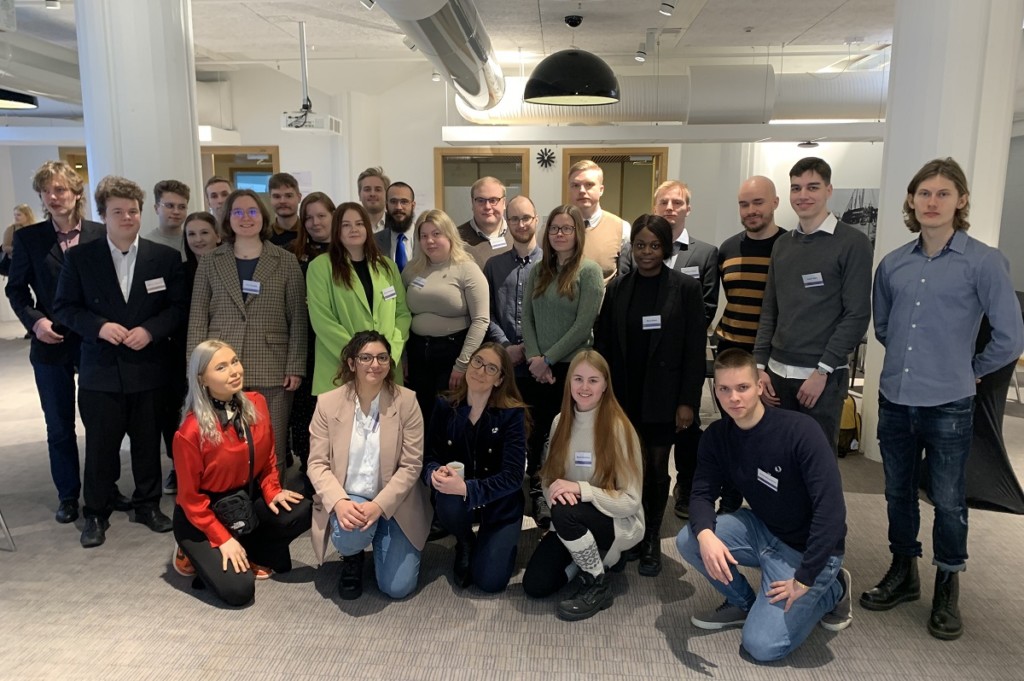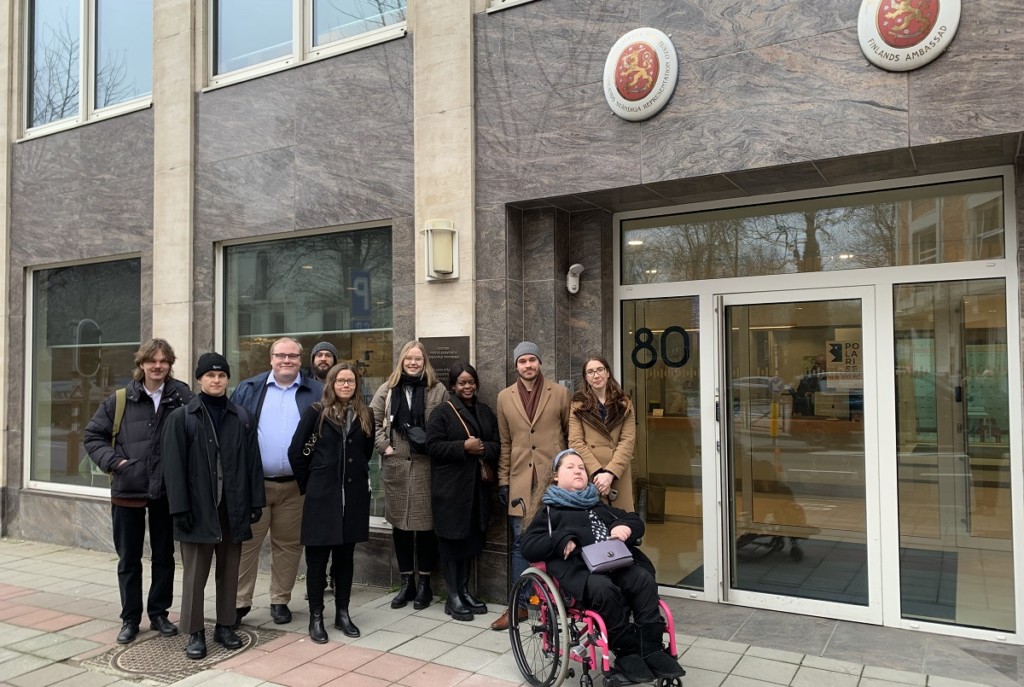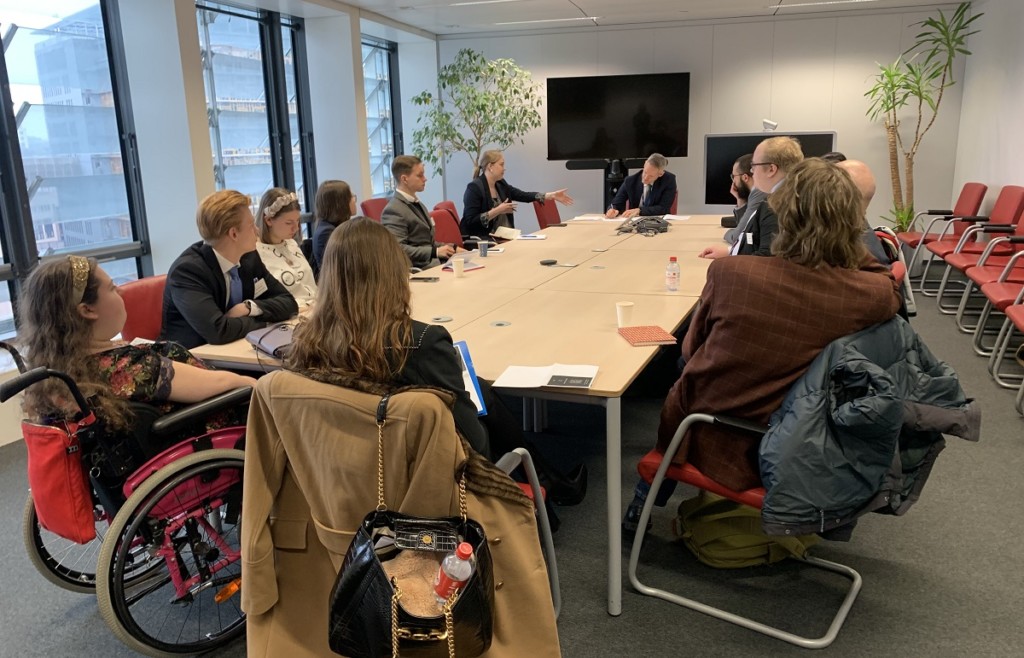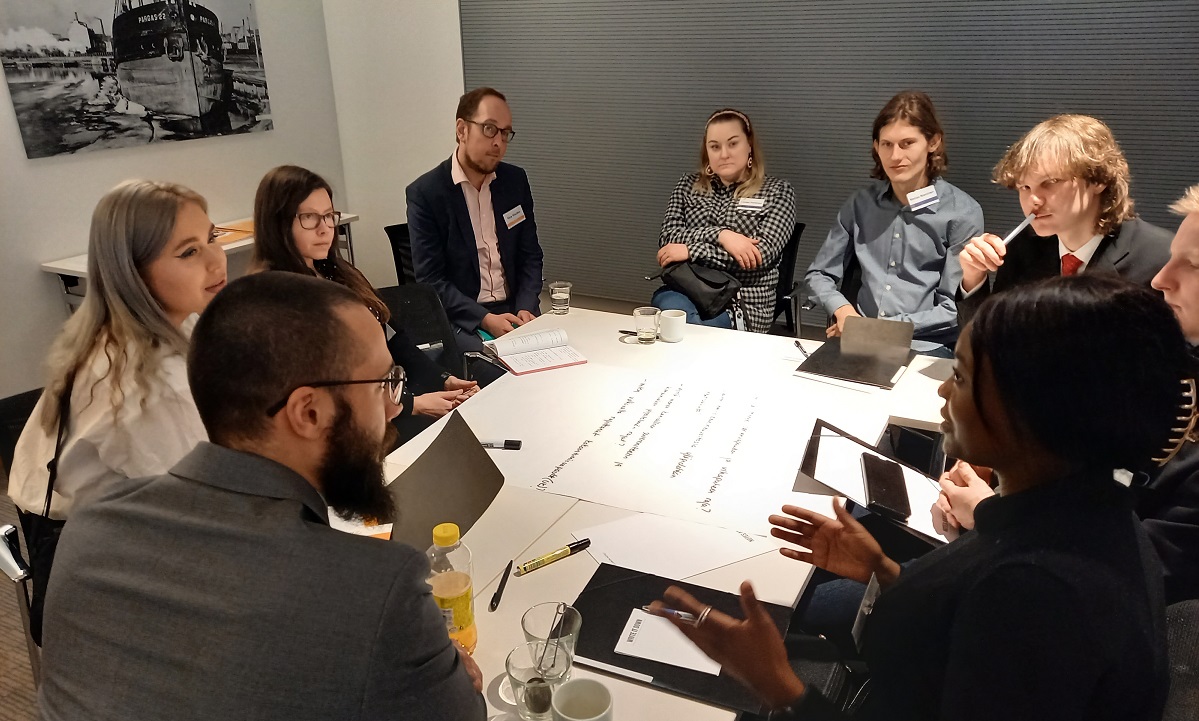In January, Demo Finland organised Democracy Academy where 28 young people from Finnish parliamentary parties gathered in Helsinki to learn, discuss and share experiences about the connection of democracy and security at the national and international level.
The participants got an in-depth look at the topics of democracy and security from experts for example from the Ministry for Foreign Affairs and Ministry of Justice, the Finnish Institute of Foreign Affairs, the University of Helsinki, non-governmental organisations and the European Centre of Excellence for Countering Hybrid Threats. In addition to sessions on the state of democracy and democracy support, the Democracy Academy included presentations and discussions on the competition between authoritarian and democratic systems, democracy promotion in challenging contexts and threats to democracy nationally and internationally.
The keynote speaker Veera Heinonen, Director of Democracy and participation unit at Sitra, focused on how best to defend and develop democracy during ongoing crises. According to Heinonen, the resilience of democratic society is the best way to strengthen security as well.

The programme also included dialogue on the role of political youth and student organisations in Finnish democracy, carried out in co-operation with Timeout Foundation. The dialogue focused on concerns as well as optimism related to the role of the organisations in Finland’s democratic system. Among the key themes that emerged were the role of political youth organisations as reformers in their respective parties and promoters of young people’s political participation, concern about the effects of polarisation, online targeting and belittling in youth organisations, but also trust in young people’s interest in political affairs, which is visible especially outside of traditional forms of decision-making.
In their feedback, the participants raised encounters and conversation with representatives of other parties as one of the highlights of the Democracy Academy. Indeed, strengthening dialogue and building networks among young people across party lines is one of the goals of the Democracy Academy. The Academy also offered the participants new knowledge and data on the state of democracy and how to support democracy, and their understanding on the complexity of the challenges to democracy was strengthened.
Getting to know EU’s democracy work
After the Democracy Academy weekend, eight participants from different parties participated in a study visit to Brussels, where they delved deeper into how democracy is promoted and defended in the context of the EU. The visit included introduction to the roles and activities of different EU institutions as well as to EU’s policies and programmes regarding democracy, and meetings with international democracy organisations.
In addition to the visits to the European Parliament, the European Commission and the European External Action Service, the group met members of the cabinet of Jutta Urpilainen, Commissioner responsible for international partnerships, as well as Finnish MEPs Heidi Hautala, Silvia Modig and Nils Torvalds. The participants also discussed multi-party co-operation between their organisations.

According to the feedback, the study visit further increased the participants’ understanding on the global state of democracy and democracy support, and it strengthened dialogue between the political youth organisations. The importance of multi-party dialogue and the need for long-term work to promote democracy globally also opened up to many in a new way.
Demo Finland has organised training programmes for Finnish parliamentary parties’ youth and student organisations for eight times already. In 2022, an alumni network was established, so that the dialogue can continue even after the Academy.


